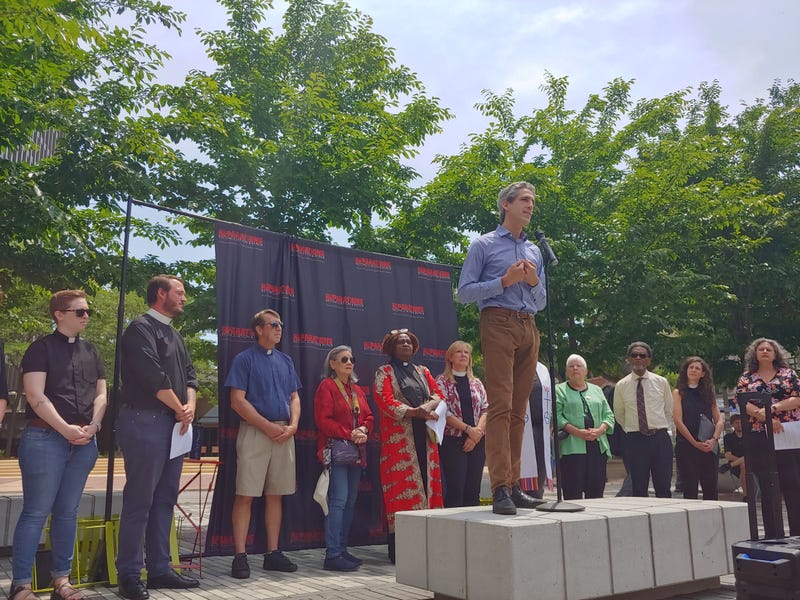
As cannabis tax dollars slowly build in Evanston’s reparations fund, more than a dozen of the city’s churches, synagogues, and other religious organizations have committed to raising money for the effort.
At a rally in downtown Evanston on Monday, Rabbi Andrea London with Beth Emet Synagogue said the goal is not only to provide funds, but to help repair what she called the psychic, economic, and emotional damage of racism.
“We feel that we, as religious leaders, have moral suasion and responsibility to lead in this area by figuring out a process of reconciliation and atonement,” London said.
Reverend Michael Woolf of Lake Street Church said, “Reparations first focus on formally acknowledging collective responsibility for past wrongs and their continuing effect.”
Mayor Daniel Biss acknowledged that cannabis taxes are not generating as much as expected.
“We would much prefer to do it significantly faster than the resources are arriving,” Biss said. “There [are] things that we’re going to think about internally, but there’s also room for the community to step up and be a part of supporting this effort.”
He called the first $400,000, which is going to 16 residents for housing assistance, a down payment on the city’s $10 million pledge.
Not everyone in the crowd at Fountain Square supported the idea of religious groups raising money for the private fund that would complement the city funds.
Rose Cannon, a founder of Evanston Rejects Racist Reparations, objected to the efforts, which she said are too small, not limited to descendants of slaves, and could jeopardize federal reparations.
“It’s a lie that we can’t prove our lineage,” Cannon said. “We can, and we want to be paid by the U.S. government — not by these little, funky, grifting, municipal reparations.”
As someone who has documented her slave lineage, Cannon said she won’t be repaired until the U.S. government pays her about $800,000 — a number she said was arrived at by the Black Freedmen movement.
Biss said the City of Evanston's program, which has different requirements and restrictions than the private funding, is not reparations.
Rather, Biss said, it's an effort to address Evanston’s role in creating the racial wealth gap that persists today.
Listen to WBBM Newsradio now on Audacy!


